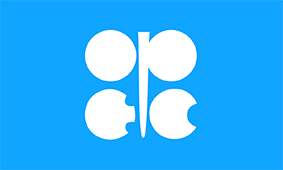
Iran says Opec+ countries mulling deeper output cuts

The 24-strong group, led by Saudi Arabia and Russia, have since January been implementing a deal to scale back their collective production by around 1.2mn b/d in an effort to support the market. Opec members are providing 810,000 b/d of the cut, while 10 non-Opec countries are contributing the remaining 380,000 b/d in a deal that runs until March 2020. But, with OECD commercial oil stocks still close to the record levels seen during most of 2016, and renewed concerns over demand growth rates next year, there is a renewed focus on whether further action might be needed to help balance the market.
"The oil prices is fluctuating around the $60/bl mark; and as much as they do to try to push the oil price higher, it does not rise much beyond that level," Zanganeh said. "So yes, there are discussions about increasing the production cuts at the upcoming meeting."
This somewhat echoes Opec secretary-general Mohammed Barkindo's words at the Oil and Money conference in London last month where, asked about the prospect for deeper cuts being agreed at the December meeting, he said that "at the moment, all options are open".
But it is clear that there is no consensus view. Russian energy minister Alexander Novak last month said changing the terms of the deal "is not under consideration," and Kuwait's oil minister Khaled al-Fadhel said around the same time that it was too early to make a decision.
"We have our JMMC, which is going to monitor what we have on the statistics, and see whether we will be able to continue with a cut, [make] a further cut, or reduce the cuts," al-Fadhel said.
The Joint Ministerial Monitoring Committee (JMMC), which is responsible for overseeing compliance with the Opec, non-Opec agreement, will meet in early December, ahead of the Opec and non-Opec meetings in Vienna on 5 and 6 December. Russia and Kuwait sit on the JMMC; Iran does not.
Zanganeh's comments come two days after UAE energy minister Suhail al-Mazrouei said the outcome of trade talks between Washington and Beijing would, to a large extent, determine the oil demand outlook for the coming two years.
"There are many factors that impact oil prices, besides supply and demand… including geopolitical changes and the trade talks between the US and China. This will play a major role in determining the demand for oil next year," al-Mazrouei said. "The demand picture will be clearer for 2020 and 2021 once the trade talks come to an end."


Eldorado to kick off $1B Skouries mine production in early 2026

Newmont nets $100M payment related Akyem mine sale

First Quantum scores $1B streaming deal with Royal Gold

Caterpillar sees US tariff hit of up to $1.5 billion this year

Copper price collapses by 20% as US excludes refined metal from tariffs

Gold price rebounds nearly 2% on US payrolls data

St Augustine PFS confirms ‘world-class’ potential of Kingking project with $4.2B value

B2Gold gets Mali nod to start underground mining at Fekola

Copper price posts second weekly drop after Trump’s tariff surprise

NextSource soars on Mitsubishi Chemical offtake deal

Copper price slips as unwinding of tariff trade boosts LME stockpiles

SAIL Bhilai Steel relies on Danieli proprietary technology to expand plate mill portfolio to higher steel grades

Alba Discloses its Financial Results for the Second Quarter and H1 of 2025

Australia weighs price floor for critical minerals, boosting rare earth miners

Australia pledges $87M to rescue Trafigura’s Nyrstar smelters in critical minerals push

Fresnillo lifts gold forecast on strong first-half surge

Why did copper escape US tariffs when aluminum did not?

Fortuna rises on improved resource estimate for Senegal gold project

Caterpillar sees US tariff hit of up to $1.5 billion this year

NextSource soars on Mitsubishi Chemical offtake deal

Copper price slips as unwinding of tariff trade boosts LME stockpiles

SAIL Bhilai Steel relies on Danieli proprietary technology to expand plate mill portfolio to higher steel grades

Alba Discloses its Financial Results for the Second Quarter and H1 of 2025

Australia weighs price floor for critical minerals, boosting rare earth miners

Australia pledges $87M to rescue Trafigura’s Nyrstar smelters in critical minerals push

Fresnillo lifts gold forecast on strong first-half surge

Why did copper escape US tariffs when aluminum did not?

Fortuna rises on improved resource estimate for Senegal gold project














